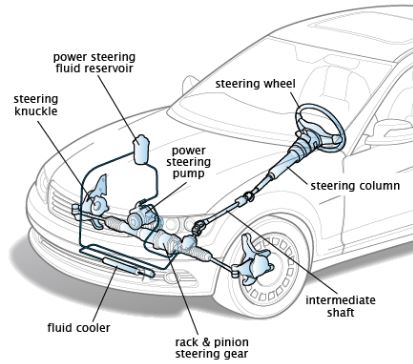Gaseous Fuel – Advantages and Disadvantages:
Advantages of Gaseous Fuels:
- Gaseous fuels are highly combustible and produce a lot of energy per unit volume.
- They can be transported easily and stored in tanks.
- Gaseous fuel is an efficient and environmentally-friendly energy source over traditional fuels.
- Gaseous fuels have lower carbon content per unit volume than gasoline or diesel fuel.
- They also provide a high energy density per unit volume.
- The output little toxic by-products when combusted which reduces air pollution problems.
- Gaseous fuel has a higher energy density than most other fuels, meaning it can produce more energy per unit volume.
- Gaseous fuel also burns cleanly, with little or no emissions, making it an attractive option for environmentally-conscious businesses.
- They can also be used in engines that are not compatible with liquid fuels.
Disadvantages of Gaseous Fuels:
- Gases are difficult to control and can be dangerous if not handled properly.
- Storage tanks take up a lot of space.
- Gaseous fuels are that it is difficult to store because pressure must be limited, fire hazards are more prevalent because of higher vapour concentrations, combustion can produce toxic chemicals not found in traditional fuels, and nitrogen pollution is an issue.
- Gaseous fuel is expensive to set up and maintain, especially since it requires specialized expertise to acquire the fuel and equipment necessary for the process.
- It can be more expensive than other forms of fuel. Additionally, it can be difficult to find a place to refuel, and the infrastructure for delivering gaseous fuel is often not as developed as it is for liquid fuels.
- Gaseous fuel can be dangerous if not handled properly. It can cause suffocation and explosions if it leaks.
Conclusion:
In conclusion, while there are some disadvantages to using gaseous fuel, there are also many advantages. It is more efficient than other forms of fuel, easier to store and transport, and can be used in engines that are not compatible with liquid fuels. Additionally, it can help reduce air pollution and greenhouse gas emissions. For these reasons, gaseous fuel is becoming increasingly popular and is likely to continue to be used more and more in the future.
Finally, they can be substituted for traditional transportation fuels anytime anywhere without reforming first which makes them ideal as emergency power supplies for stationary aircraft engines or boat propulsion systems using internal



